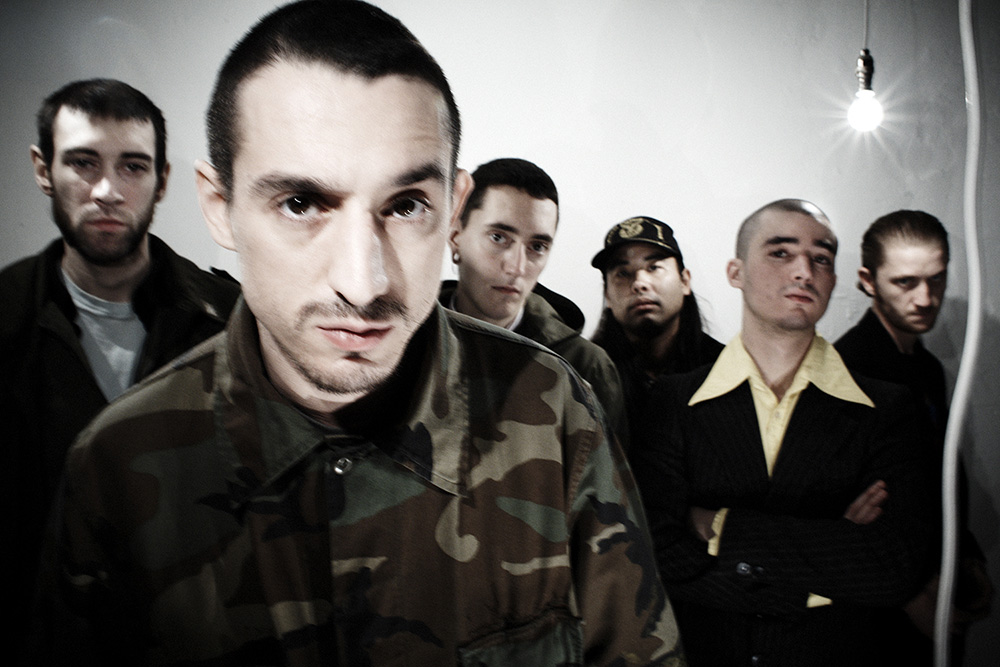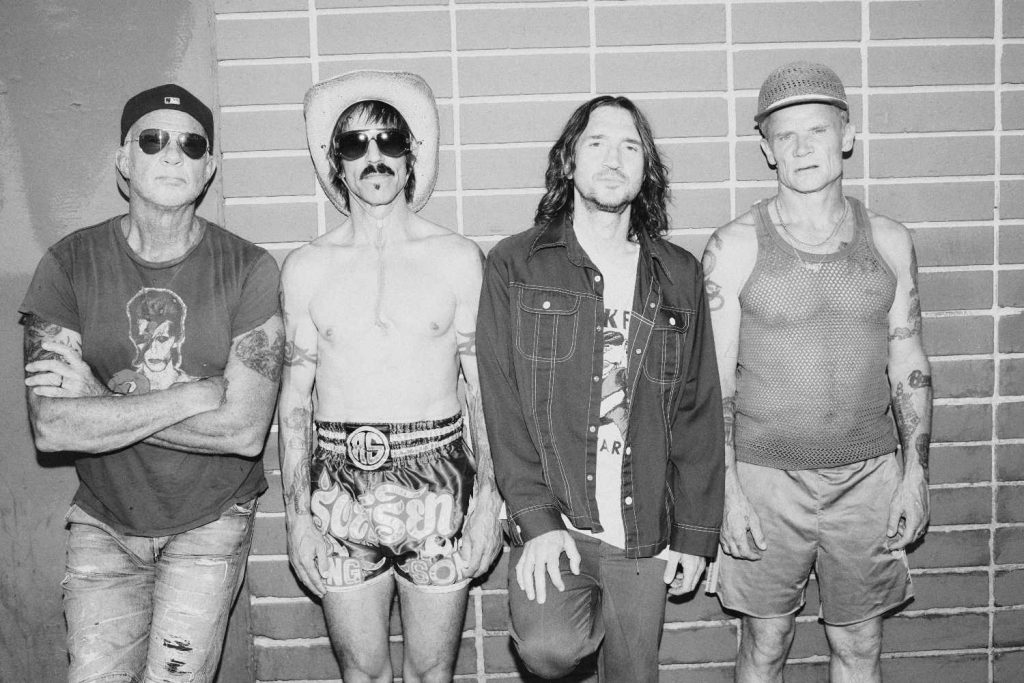But scratch the surface, and there’s more to Fat White Family than meets the eye. The band are avowedly politically motivated, though more in the sense of countering the apathy they perceive in the world around them. When I mention an interview with Saoudi in which he’s quoted as saying he’s apathetic about politics, he’s bemused. “I wouldn’t say I was politically apathetic – I’d say I was the opposite of that,” he says. In fact, recalling Radio Birdman’s original rhetorical ourish, Fat White Family are pathologically averse to apathy. “One of the most important things to us when we formed the group was how apathetic everyone else was,” Saoudi says.
Fat White Family’s political leaning isn’t a partisan or ideological construct. Just as their onstage behaviour is natural, so too is their political attitude. “As human beings we feel like we believe in the right sort of human beings – it’s not supposed to be intellectual, and not pretentious, it’s just a basic human instinct that we all seem to have,” Saoudi says. “The fact that it’s even a talking point I find bizarre – what the fuck is going on? If everyone is politically apathetic and we stand out because we’re not, then something must be wrong.”
Fat White Family formed in 2012 in South London where the original six band members were living together and playing in other bands. They came to broader public attention with the release of the Champagne Holocaust LP in 2013. Taking its musical cues from The Cramps, The Gun Club, The Fall and The Birthday Party, and with lyrical content ranging from the sensual pleasures of oral sex to perverted carnal pleasures and the mysteries of the JFK assassination, Champagne Holocaust positioned Fat White Family as the new enfant terrible of the rock’n’roll scene. One reviewer dismissed the album as “tasteless”; Pitchfork described the band as “diseased, drug addled and utterly corrupt”.
Scroll forward a couple of years and Fat White Family are gradually gaining respect from the music industry and media – not that they want it, mind you. “The reaction we got for a long time was very hostile, but I think that’s gradually changing because people are starting to see that there’s a buck to be made, or some sort of kudos to be usurped. As we’ve progressed, more and more creeps accept us,” Adamczewski says. “We haven’t been given a seat at the table yet – but I don’t think we really want one,” says Saoudi. “Fuck the tables.”
Fat White Family’s forthcoming record, Songs For Our Mothers, departs from the sound and lyrical content of Champagne Holocaust. Gone are the jagged punk blues numbers and Fall-esque post-punk riffs of the band’s debut; replaced by a mixture of glam rock licks and a darker, more contemplative atmosphere. However, Saoudi and Adamczewski deny there was any pre-conceived plan to deviate. What appears on the record was simply what came out of the creative and recording process. “We didn’t want anything different on this record,” Adamczewski says. “The way that we are, and the way that we organise ourselves, we don’t really sit down and come up with a fundamental plan.” “You’ve just got to make this stuff up – you don’t really think about it,” adds Saoudi.
But the clue to Songs For Our Mothers lies in the darkness of tracks such as Lebensraum, Duce, Love
is the Crack, We Must Learn to Rise. With the band’s internal relationships buckling under the weight of touring, substance abuse and fractious personalities, the writing and recording of Songs For Our Mothers became – subconsciously at least – a cathartic event for the band, allowing the band members to explore those feelings they were unable to express outwardly. “One of the interesting parts of making an album is that the meaning behind songs becomes more clear when you look back on it,” Adamczewski says. “That’s one of the most rewarding aspects of doing an album, actually,” says Saoudi.
Indeed, the promotional blurb accompanying Songs For Our Mothers says the album is “an invitation to dance to the beat of human hatred,” while Adamczewski says it’s “music that’s there for people to live, and also a reflection on the sour times in which we live.” If Champagne Holocaust took aim at the imperfections of the external world, Songs For Our Mothers was – in hindsight at least – about the hatred festering away within Fat White Family. “There was a breakdown in the relationships within the band, there was a lot of substance abuse going on, things were generally dark,” Adamczewski says. “We didn’t expect to end up in that place – it all actually went quite dark,” Saoudi says, his voice faltering ever so slightly as he remembers the situation the band wound up in. “What came out is just what we were feeling at the time. Hopefully the next record will be more jolly – a barrel of laughs.”
Songs For Our Mothers is out now through Without Consent / PIAS.







